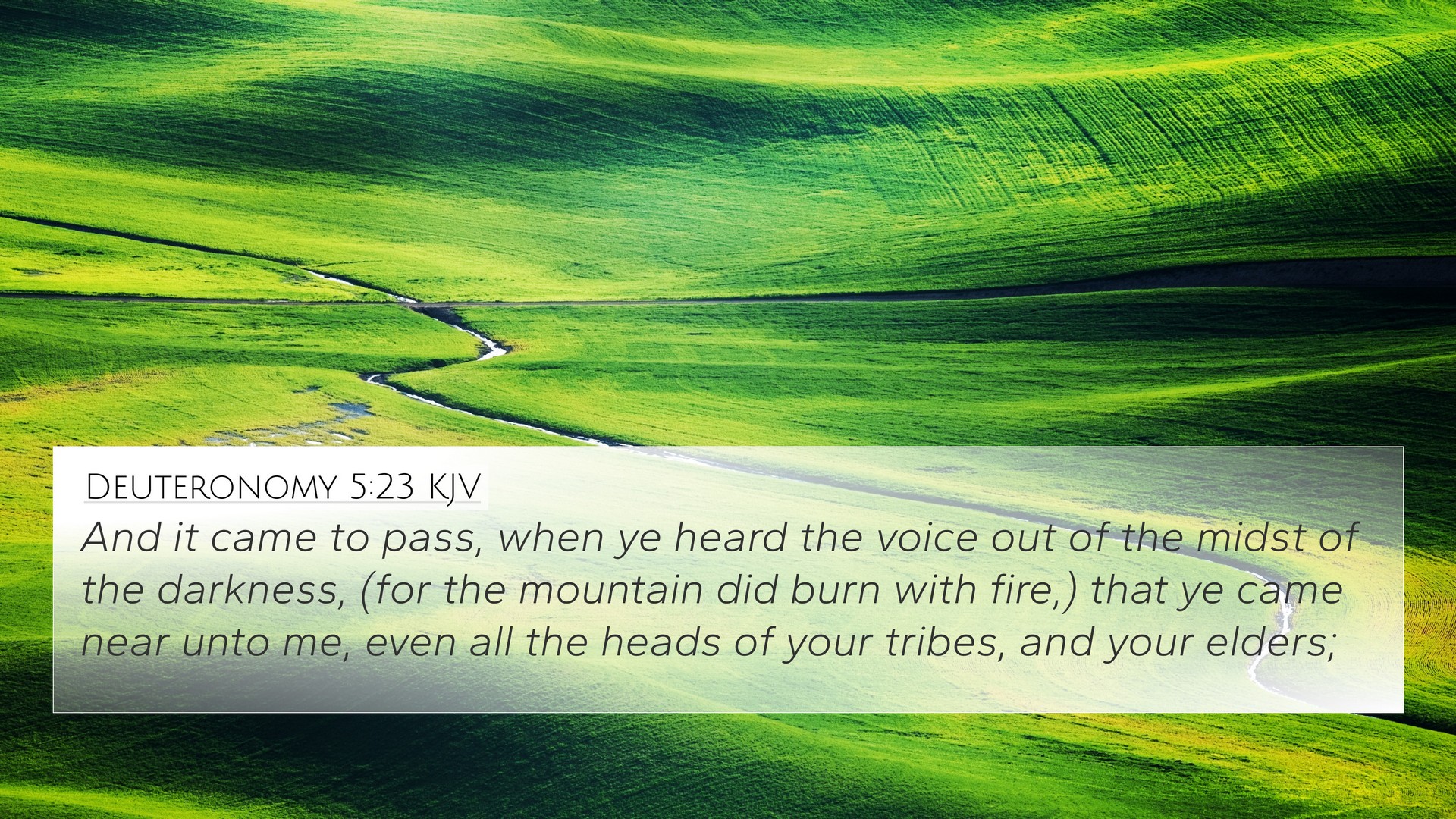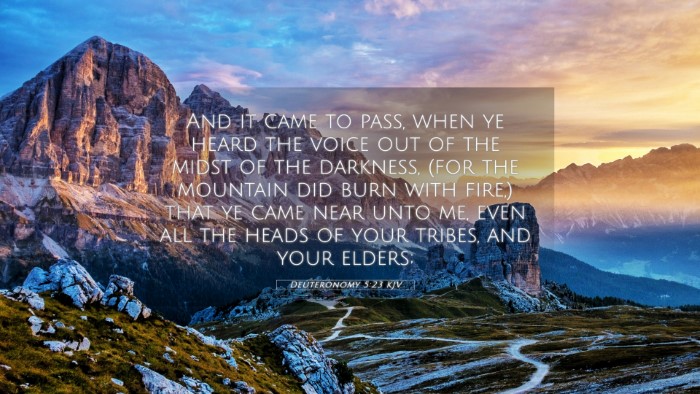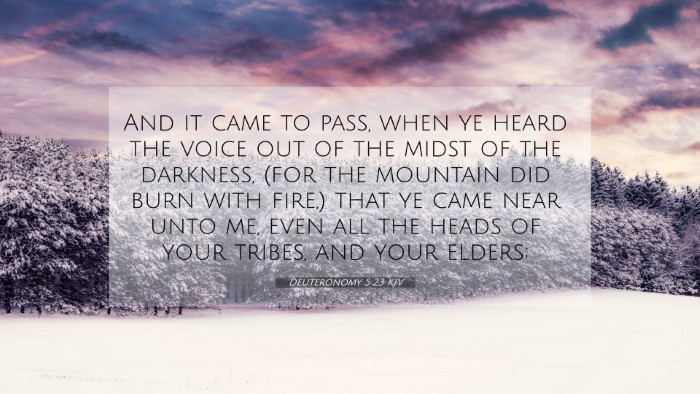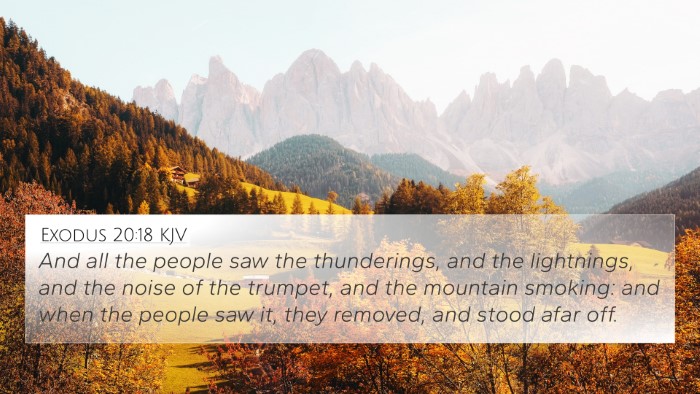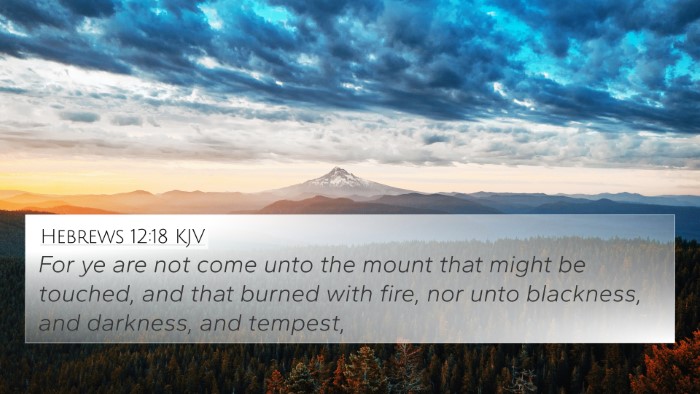Understanding Deuteronomy 5:23
Bible Verse: Deuteronomy 5:23 - "And it came to pass, when ye heard the voice out of the midst of the darkness, for the mountain did burn with fire, that ye came near unto me, even all the heads of your tribes, and your elders."
Overview
This verse is situated in the context of Moses reminding the Israelites about their covenant with God, particularly focusing on their encounter with the divine at Mount Sinai. It underscores the overwhelming fear and awe they experienced when confronted with God's majesty and the charges given to them.
Verse Meaning
The verse serves as a collective memory reconstruction for the Israelites and emphasizes several key themes from public domain commentaries:
- Awe and Fear of God: The mention of darkness and fire illustrates God's glory and the fear it incited among the people (Matthew Henry).
- Unity in Approach: The gathering of the heads of tribes and elders signifies a united front in the acknowledgment of God's sovereignty (Albert Barnes).
- God's Communication: The "voice out of the midst of the darkness" indicates a unique and powerful way in which God reveals Himself (Adam Clarke).
- Divine Presence: The emphasis on God's presence transforms the ordinary into the extraordinary, and the people's reaction highlights their understanding of this monumental encounter (Matthew Henry).
- Moses as Intermediary: The verse hints at Moses’ role as an advocate for the people, fostering a connection between them and God (Albert Barnes).
Cross-References
To further enrich the understanding of Deuteronomy 5:23, here are some relevant cross-references:
- Exodus 20:18-19: The Israelites' fear when hearing the voice of God.
- Hebrews 12:18-21: A reflection on the fear experienced at Mount Sinai compared to the new covenant.
- Job 37:22: Describes the brightness of God as He reveals Himself, echoing the themes of light and reverence.
- Psalms 104:32: The power of God's voice and presence in creation.
- Acts 7:38: References Moses and the people in the wilderness, emphasizing the covenant they received.
- Romans 10:20: God revealing Himself to those who did not seek Him, similar to His revelation at Sinai.
- 1 Thessalonians 4:16: The power of God's voice at the second coming, akin to the voice of God at Sinai.
Thematic Connections
This verse connects with various themes throughout Scripture, showcasing:
- The Nature of Divine Revelation: God’s ways of speaking to mankind, shown through the fear and awe surrounding His voice.
- Human Response to the Divine: Reflecting on how humanity reacts to the holiness of God.
- The Role of Leadership: The significance of elders and leaders in the community when responding to God.
Conclusion
Deuteronomy 5:23 not only serves as a reminder of Israel’s covenant with God but also establishes a foundation for understanding divine-human interactions. By examining this verse alongside related scriptures, we gain a comprehensive view of the nature of God’s revelation and the response it demands from His people.
Tools for Bible Study
For deeper engagement and study, consider utilizing:
- Bible concordances for locating relevant verses.
- Cross-reference guides to uncover thematic connections.
- Comprehensive materials that provide context and insights into scriptural passages.
Further Study
To understand the interconnectedness of Biblical texts and their meanings, explore methods such as:
- Bible Cross-Referencing: Identify links between verses to discover broader themes.
- Comparative Studies: Analyze connections between Old Testament narratives and New Testament teachings.
Through informed study and reflection, one can appreciate the rich tapestry of inter-Biblical dialogue represented in Deuteronomy 5:23 and its place within the overarching story of scripture.
